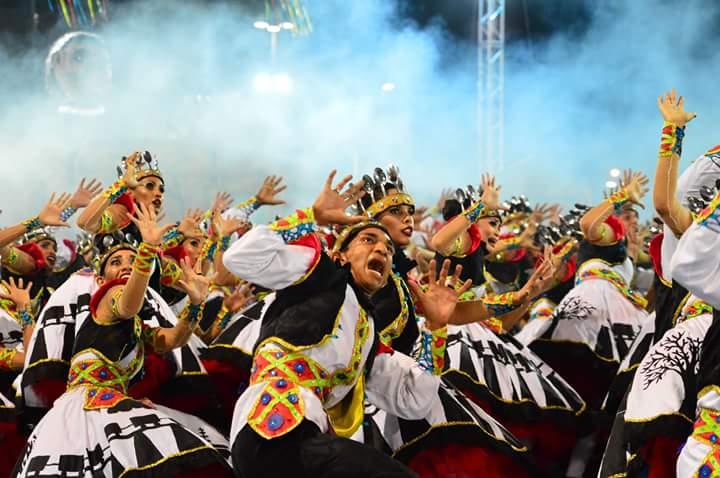Daniel Comboni
Comboni Missionaries
Institutional area
Other links
Newsletter
Tuesday, June 21, 2016
The “quadrilha” is a dance typical of Brazil’s North-East, a strong cultural expression of the season known as “junino,” namely the season of the harvest, of popular festivals held around a fire, a time for weddings and dances. Over the last several years, the quadrilhas estilizadas have become a form of artistic expression of our local culture by uniting dance and theater in order topresent, each time a fun play or even a political message. Last year, as missionaries, challenged some friends who are members of one of these quadrilhas, the Matutos do Rei of Açailândia, to join us in preparing the theme for 2016 by putting together the history of the community of Piquiá de Baixo. This is the community that has been suffering the violent abuse of pollution caused by the steel industry and by the cycle of the mining of iron ore. We have already talked about it at different times and you may want to explore the subject more deeply by clicking here and find sources in Italian. Here we offer the complete video of the performance (unfortunately, the sound track is not yet perfect).
Matutos do Rei accepted the challenge. They spent from August to October to outline the story outline and to prepare the manuscript. In November, came the selection of the young people and the background work: the choice of music, choreography, scenery, casting…
Rehearsals began in December in an effort to harmonize a group of 122 young people, coming mostly from the peripheries of our city. It involved the work of young professional dancers, choreographers, actors, artists and a theater director who taught other young people. The aim was to help the youth to reach a competence and professional level that would be appreciated and rewarded in the official contests the quadrilha would have to enter in June and July.
We missionary worked with them at every step to provide a bridge to the reality of life in the community, which at the same time continues its struggle to obtain a collective transfer to a pollution free location.
During a moving ceremony, the people of Piquiá de Baixo gave to each member of the cast the Ring of Tucum, which is a symbol of commitment to the cause of the poor, as a sign of partnership and as a send-off.
Finally, after six months of team work, the performance was ready. Words fail me to describe the feelings: it is a very strong performance, with many details and symbols. The title is, “Love and Truth shall meet, Justice and Peace shall Kiss.” The story is moving and full of surprises. It succeeds in putting together the indignation of the people, the manipulation and hypocrisy of the industrial companies, the divisions within the community, the organization and faith in the final victory. I won’t tell you the story. Those of you who know Portuguese will follow it in the video I am sending you. Just a few details. The articles of clothing are hand-made and finished , one by one, by the youth themselves. They worked nights, arriving at 8:00 in the evening from school or from work, to spend time together, sewing, drawing and chatting until dawn. All the young people use “crown of spoons”: it represents the communities that express their hunger for justice.
The quadrilha already won the Arraial de Mira, in Imperatriz, and it is due to take part in a first national competition in Fortaleza.
The following day they repeated the performance in Açailândia, in the public square in front of the Courthouse, in the presence of all the judges and prosecutors. It was an important moment, as a sign of the clamor for justice rising from the entire community.
Like all performances of this intensity and level, the expenses have been high. We involved some families in Italy, who came through with simplicity and collectively.
Outside donations have covered about one third of the expenses. The balance was earned entirely by the youth. During the last month, they sold cold drinks and beer at night festivals around the city, organized fund-raising dinners and raffles. This very hard work doubles their pride for having won and for having brought to the entire Brazil the history of Piquiá. We are strong believers in art as a powerful instrument of liberation, against the hypnotism of a system that deadens our very consciences.
Dario Bossi.










